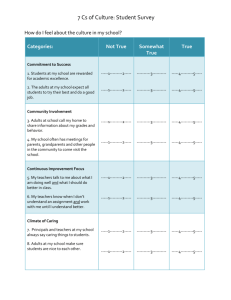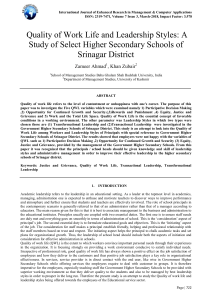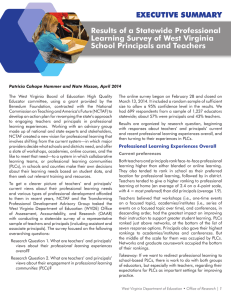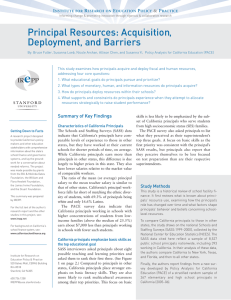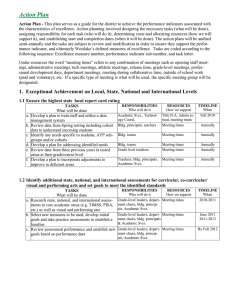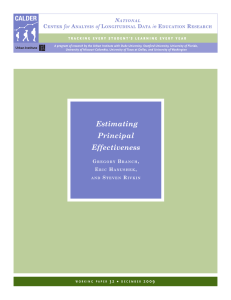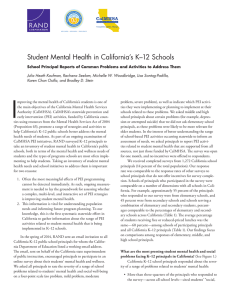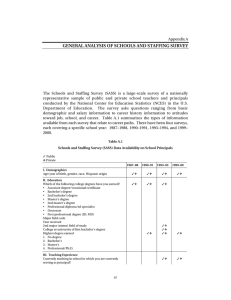ABSTRACT DISSERTATION: Leadership Styles of Principals in Successful Title I Elementary... STUDENT: Cameron Gonzales
advertisement
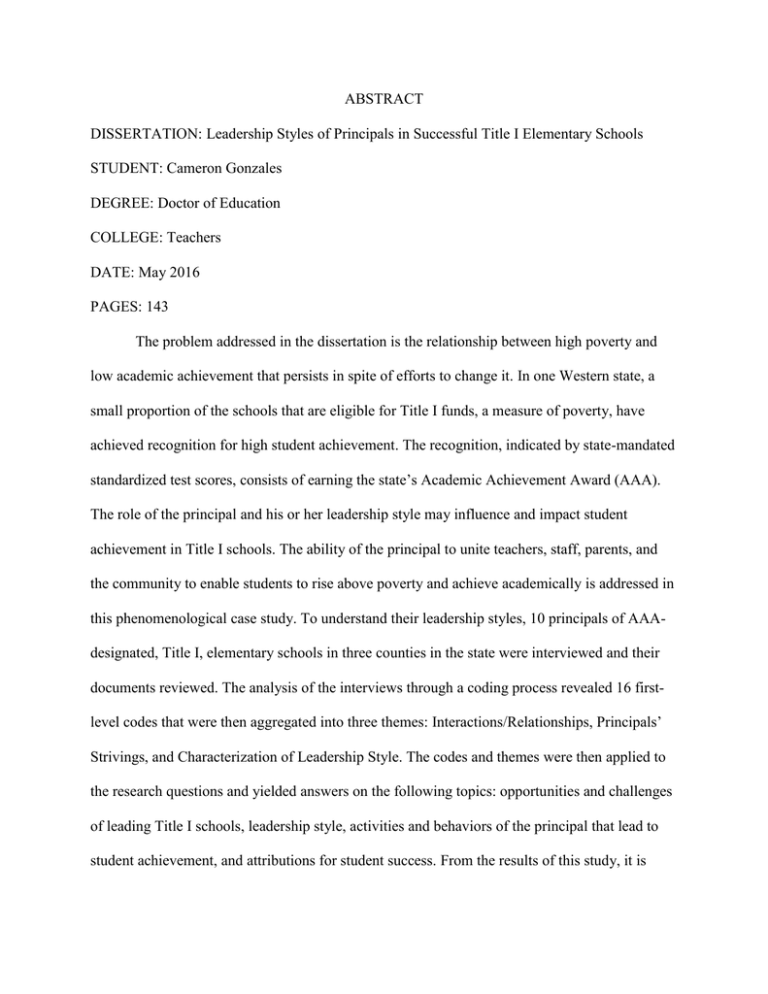
ABSTRACT DISSERTATION: Leadership Styles of Principals in Successful Title I Elementary Schools STUDENT: Cameron Gonzales DEGREE: Doctor of Education COLLEGE: Teachers DATE: May 2016 PAGES: 143 The problem addressed in the dissertation is the relationship between high poverty and low academic achievement that persists in spite of efforts to change it. In one Western state, a small proportion of the schools that are eligible for Title I funds, a measure of poverty, have achieved recognition for high student achievement. The recognition, indicated by state-mandated standardized test scores, consists of earning the state’s Academic Achievement Award (AAA). The role of the principal and his or her leadership style may influence and impact student achievement in Title I schools. The ability of the principal to unite teachers, staff, parents, and the community to enable students to rise above poverty and achieve academically is addressed in this phenomenological case study. To understand their leadership styles, 10 principals of AAAdesignated, Title I, elementary schools in three counties in the state were interviewed and their documents reviewed. The analysis of the interviews through a coding process revealed 16 firstlevel codes that were then aggregated into three themes: Interactions/Relationships, Principals’ Strivings, and Characterization of Leadership Style. The codes and themes were then applied to the research questions and yielded answers on the following topics: opportunities and challenges of leading Title I schools, leadership style, activities and behaviors of the principal that lead to student achievement, and attributions for student success. From the results of this study, it is clear that award-winning school leaders are not identical. Overall, these principals tended to exhibit several positive leadership characteristics including attention to school climate, involvement in data-driven practices, and intentional data-driven decision making in their instructional leadership practices. The results also suggested that the principals of AAAdesignated, Title I elementary schools in the state characterized their leadership styles primarily as situational, transformational, transactional, and open or participatory. Transactional leadership requires administrative precision; a school in chaos cannot thrive. To achieve student success, principals cited interactions and relationships as important across the board. In addition, they did not restrict these interactions and relationships to only one group, but to all constituents including teachers, students, staff, parents, and community members. The principals were also all involved in “progressive success making”; that is, they made sure that everything from the safety of the students to the cleanliness of the school to the high quality of instruction to the smile on the face of the office secretary was designed to be positive and would incrementally lead to student academic—and social—success. Finally, a number of people recall school as a punitive environment where punishments were meted out for a variety of infractions, and academic failure led to future failure and a lifelong lack of self-esteem. These principals agreed that their schools would not be about being bad, but would be only about being good, positive, supportive, and successful in academic and social situations. These findings have implications for principal leadership especially in low socioeconomic status, Title I, and low-achieving schools and for future research in the field of educational leadership.
